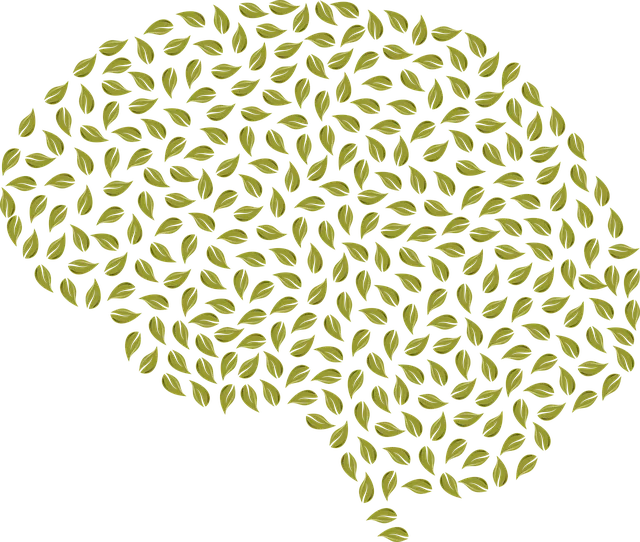The Kaiser Permanente mental health centers address the significant impact of stigma on mental illness, observed through increased anxiety and depression among patients. They offer comprehensive services including tailored wellness coaching, awareness programs, and education to promote positive thinking and self-esteem. By creating a supportive environment and integrating cultural competency training for healthcare providers, these centers reduce social barriers to treatment and foster understanding within communities. Their innovative strategies, combined with successful advocacy efforts, have improved access to care and emotional healing, highlighting the superior outcomes achieved at Kaiser Permanente mental health centers. Continued policy analysis and advocacy are crucial for mainstreaming mental wellness and ensuring equal support for all.
Mental illness stigma remains a significant barrier to optimal mental well-being, often leading to social isolation, treatment delays, and diminished quality of life. This article explores comprehensive strategies for reducing mental health stigma, drawing insights from the innovative efforts at the Kaiser Permanente Mental Health Center. We delve into their successful programs and highlight future directions, emphasizing the crucial role of education, advocacy, and supportive communities in fostering a more inclusive society that embraces mental health as a vital aspect of overall wellness.
- Understanding the Impact of Stigma on Mental Health
- Strategies for Reducing Stigma: A Comprehensive Approach by Kaiser Permanente Mental Health Center
- Success Stories and Future Directions in Overcoming Mental Illness Stigma
Understanding the Impact of Stigma on Mental Health

Stigma surrounding mental illness can have profound effects on individuals’ well-being and their willingness to seek help. At a Kaiser Permanente mental health center, the impact is evident in various ways. Many patients face challenges due to societal perceptions, leading to increased anxiety, depression, and a reluctance to disclose their struggles openly. This hidden burden often exacerbates existing symptoms and hinders progress towards recovery.
Reducing stigma requires a multifaceted approach. Mental health centers like Kaiser Permanente play a vital role by offering comprehensive services that include not just treatment but also education and awareness programs designed to foster positive thinking and self-esteem improvement. By addressing these issues head-on, such centers contribute to a more supportive environment, encouraging open conversations about mental health and ultimately transforming societal attitudes.
Strategies for Reducing Stigma: A Comprehensive Approach by Kaiser Permanente Mental Health Center

The Kaiser Permanente Mental Health Center has pioneered innovative strategies to combat mental illness stigma, focusing on a comprehensive approach that transcends traditional boundaries. They offer tailored mental wellness coaching programs designed to empower individuals with coping mechanisms and resilience-building techniques, fostering self-care and improved mental health outcomes. By integrating these initiatives into community outreach and healthcare services, the center aims to promote understanding and reduce the social barriers associated with seeking treatment.
Furthermore, recognizing the crucial role of healthcare provider cultural competency training, the Kaiser Permanente Mental Health Center has implemented comprehensive programs that educate medical professionals on the nuances of diverse mental health experiences. This training equips providers with the skills to offer culturally sensitive care, ensuring that every patient feels heard, respected, and supported. Ultimately, these efforts contribute to a more inclusive healthcare environment where individuals can embrace their mental wellness journey with dignity and confidence.
Success Stories and Future Directions in Overcoming Mental Illness Stigma

In recent years, notable success stories have emerged from mental health advocates and organizations dedicated to reducing stigma surrounding mental illness. Kaiser Permanente mental health centers, for instance, have played a pivotal role in promoting understanding and acceptance through comprehensive services and public education initiatives. These efforts have not only improved access to care but also fostered a culture of emotional healing processes within communities.
Looking ahead, the future of stigma reduction lies in continued Mental Health Policy Analysis and Advocacy at both local and national levels. By integrating mental wellness into mainstream discourse and policy-making, we can dismantle systemic barriers and ensure that individuals seeking support for their emotional health receive it without prejudice. This holistic approach aligns with the progress made thus far and promises even greater strides in creating an inclusive society where everyone has equal opportunities to thrive.
Mental illness stigma, a long-standing barrier to seeking help, can be effectively addressed through comprehensive strategies like those employed by the Kaiser Permanente Mental Health Center. By fostering understanding and empathy through education, media representation, and personal narratives, we can significantly reduce stigma. Success stories shared in this article highlight the power of community support and resources in overcoming mental health challenges. As we look ahead, a continued focus on innovative approaches, policy changes, and open dialogue will be crucial to achieving a more inclusive and supportive society for those living with mental illness, ultimately ensuring access to superior mental health care for all.






